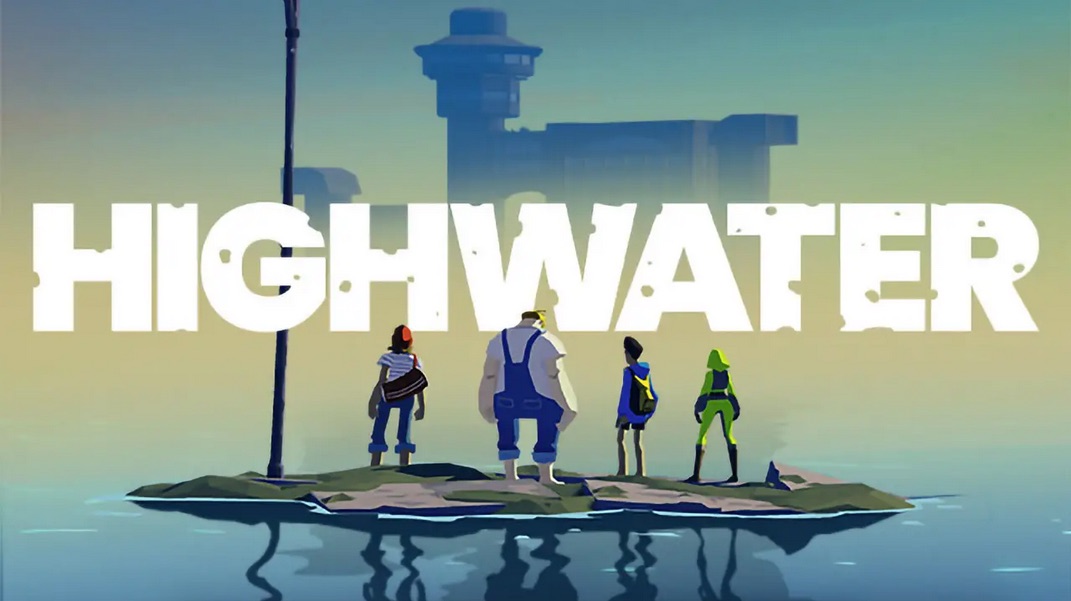Highwater boasts a compelling premise but fails to deliver on its full potential. The opening sequence starts with palpable intrigue, featuring a striking image of a lone figure driving a boat in a flooded city. A pirate radio disc jockey, with flamboyant narration, explains the backstory. However, it doesn’t take long before players are set loose in a vast body of water, only to encounter the first invisible walls and struggle to maneuver the sluggish boat.
The sailing in this game is more frustrating than boating in real life. It feels less like you’re on the ocean and more like pudding. The weight and movement do not feel accurate and a huge wave of relief washes over when you can exit the boat and walk on dry land. While actions are limited, it seems like this could be a decent RPG… that is until you realize that there are no character growth systems or inventory, and most battles are either pointless or are rigid in their design.
Highwater is a game that seems like it could have been so much more. Its imaginative concept is wasted with utterly basic gameplay that wouldn’t be so bad if it was aimed at small children, but it is rated T for teen, explores sexual themes, and features graphic depictions of death. Who is this game for? Find out in our Highwater review!
Highwater
Developer: Demagog Studio
Publisher: Rogue Games, Inc., Netflix
Platforms: Windows PC, Android, Nintendo Switch, Xbox One, Xbox Series X|S, PlayStation 4, PlayStation 5 (reviewed)
Release Date: February 26, 2024
Price: $19.99 USD

Highwater describes itself as a genre-bender, melding RPG, strategy, boating sim, and adventure elements. However, it doesn’t commit to the strengths of any of them. All it has going for it is a premise that’s unexpectedly linked to the developer’s other games: Golf Club: Nostalgia and The Cub. These three games combined tell a greater story of a post-apocalyptic Earth, a society dividing, and the colonization of Mars, where Martian-born humans have become oafish elite dilettantes.
Within the grand Demagog Studio universe, a surprisingly humble story unfolds. It follows a little Greek guy and his friends who embark on a perilous boat journey through a warzone, all to reach a rocketship bound for Mars. This is the entire plot and while it is very basic, one would expect some interesting character banter and growth to happen along the way. This is not the case for Highwater.
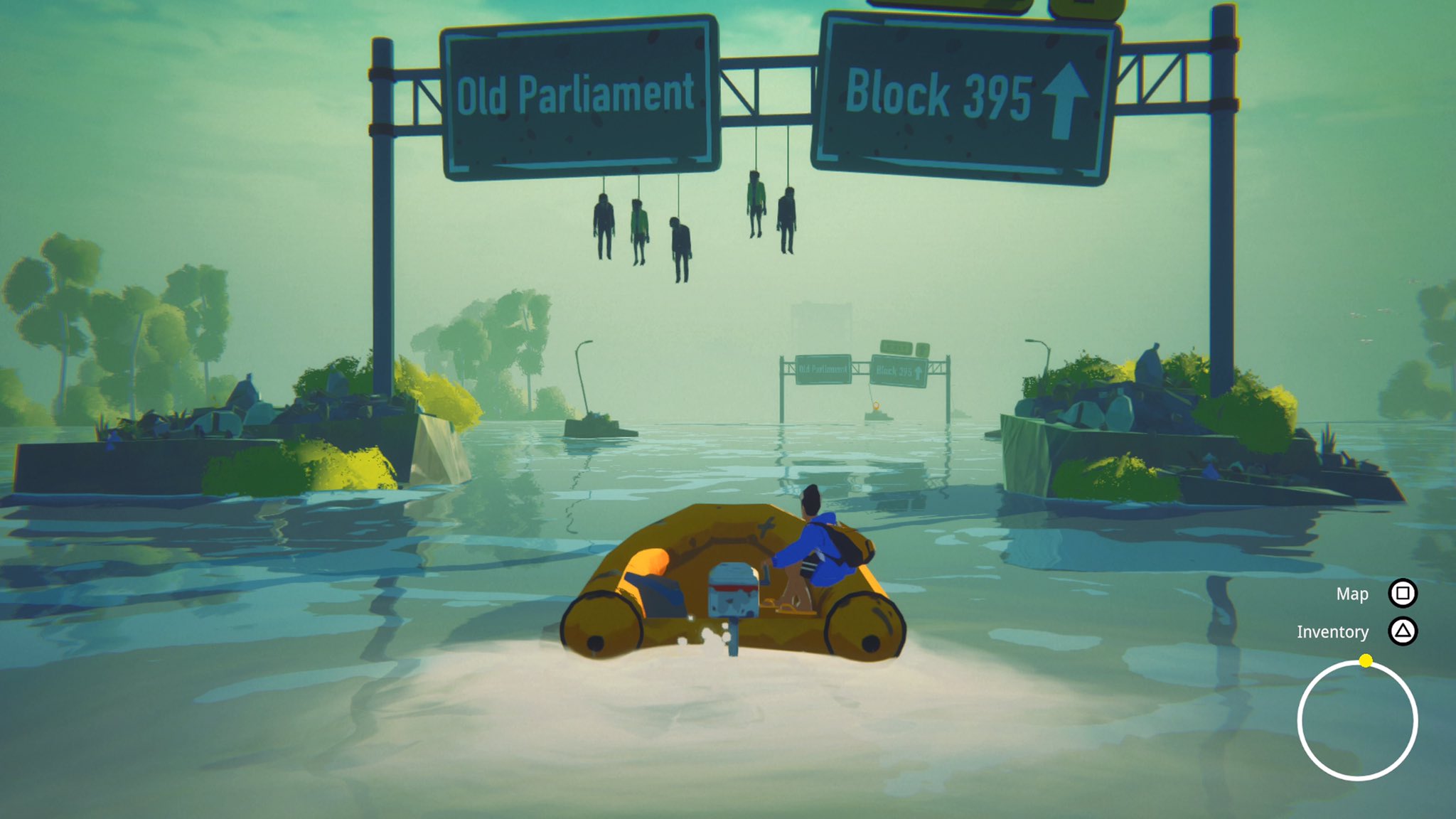
Most of the dialogue is inane and the characters discuss matters that rarely get any payoff. It feels like a low-budget indie movie where the camera is left on and characters are desperately trying to improv slice-of-life moments. The idea was probably to make the cast feel grounded and realistic, but there is also no way to skip the long unskippable sequences of chatter.
The flow of the game has the party dropped in a small open-ended body of water where players are free to explore a few islands. Usually, this means having to find a key item to progress and possibly exploring optional areas that will have a bit of lore and an optional battle.
After all flag checks are met, there is a cutscene of the party traveling and talking which leads into the next area. The adventure game elements are very basic and verge on preschool levels of depth. There is never any question on what needs to be done because there is usually never more than one objective. Most items are either lore collectibles or one-time-use items which are laughingly meant to be skills.
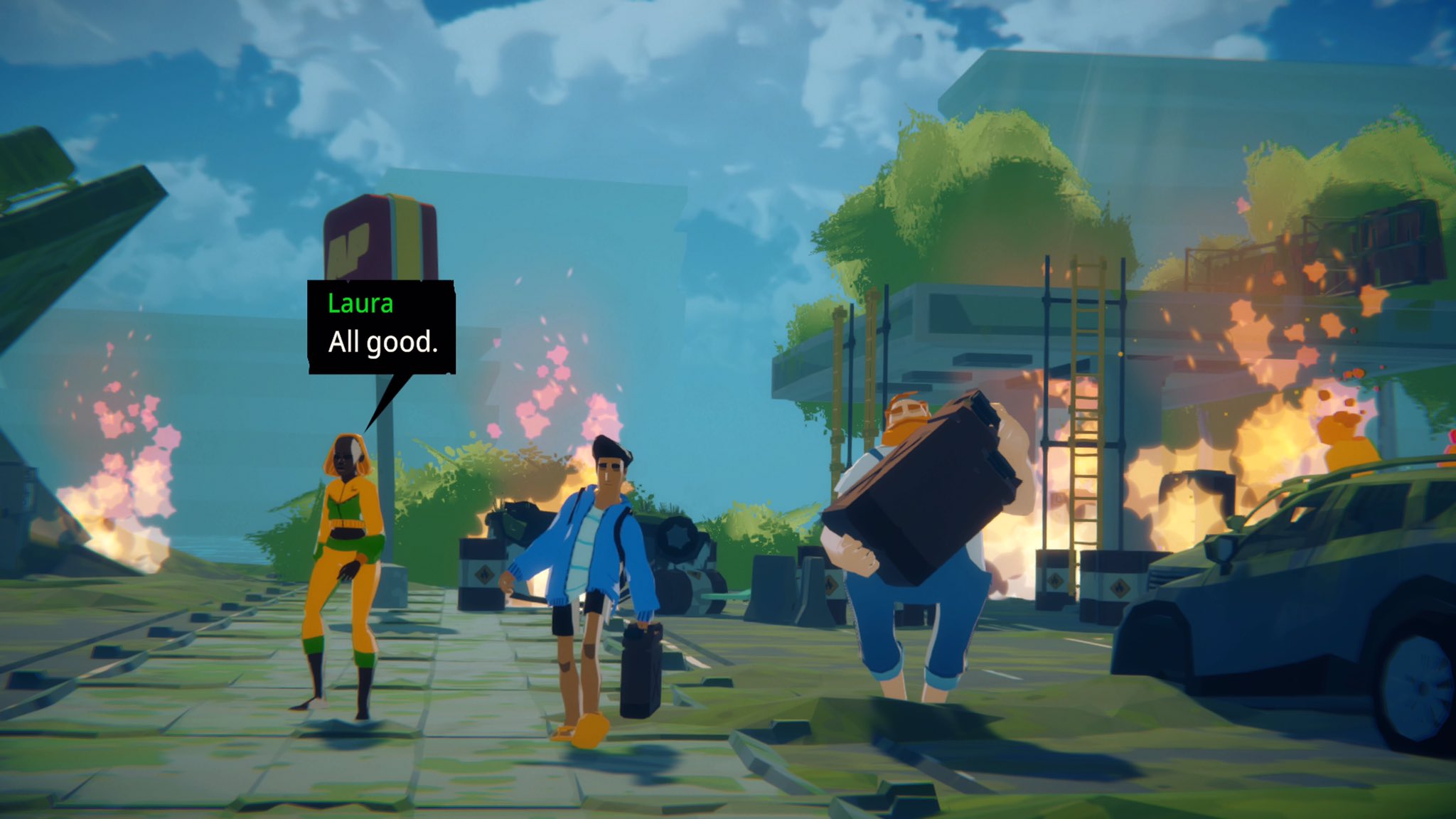
The meat of Highwater is the strategic battles which are very restrictive because of the complete lack of stats. These feel less like strategic battles and more like adventure game puzzle-solving since each character/foe never has more than six units of HP and there are no variables.
The battles are very simplistic and move slowly. Characters have lethargic animation and sound design during these sequences lacks punch. There is also very little consequence for playing poorly. If you win by a slim margin from brute forcing a victory and have only one character left standing with everyone else dead, the entire party is restored to full health after the battle. It doesn’t matter how good you are since there is no score or ranking.
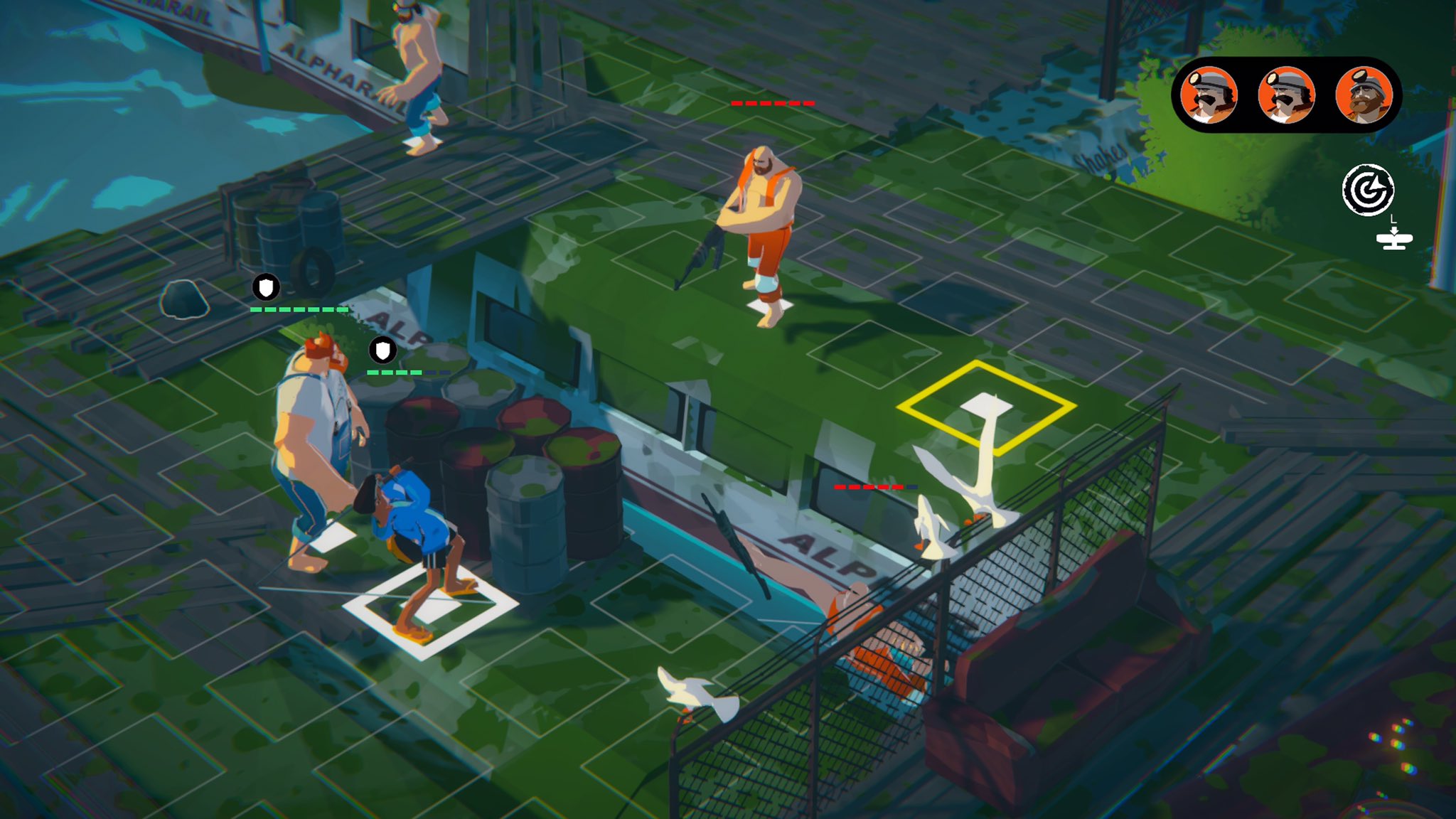
The only iota that Highwater has in its battles is how players can utilize the stage hazards to their advantage. In most cases, using the environment against the opposition is the only way to win since most enemies are armed with guns or outnumber the player. These gimmicks can take on many forms and due to Highwater being very short, they don’t get repeated often.
Every character gets two slots for weapons and the protagonist is notable for being able to equip a fishing rod. For a game that is set in a flooded world, it completely misses the opportunity to allow a fishing mini-game. The rod only does one damage unit but can be used smartly by tugging enemies in one space. This proves to be very useful since pulling a target out of bounds counts as instant death.
The strategy is limited and most fans of the genre won’t be challenged. It feels as if Highwater was meant to be a child’s first tile-based strategy game – yet the Mario + Rabbids games proved to be more mentally demanding than this. It is weird playing such a brain-dead strategy game that was aimed at older players.
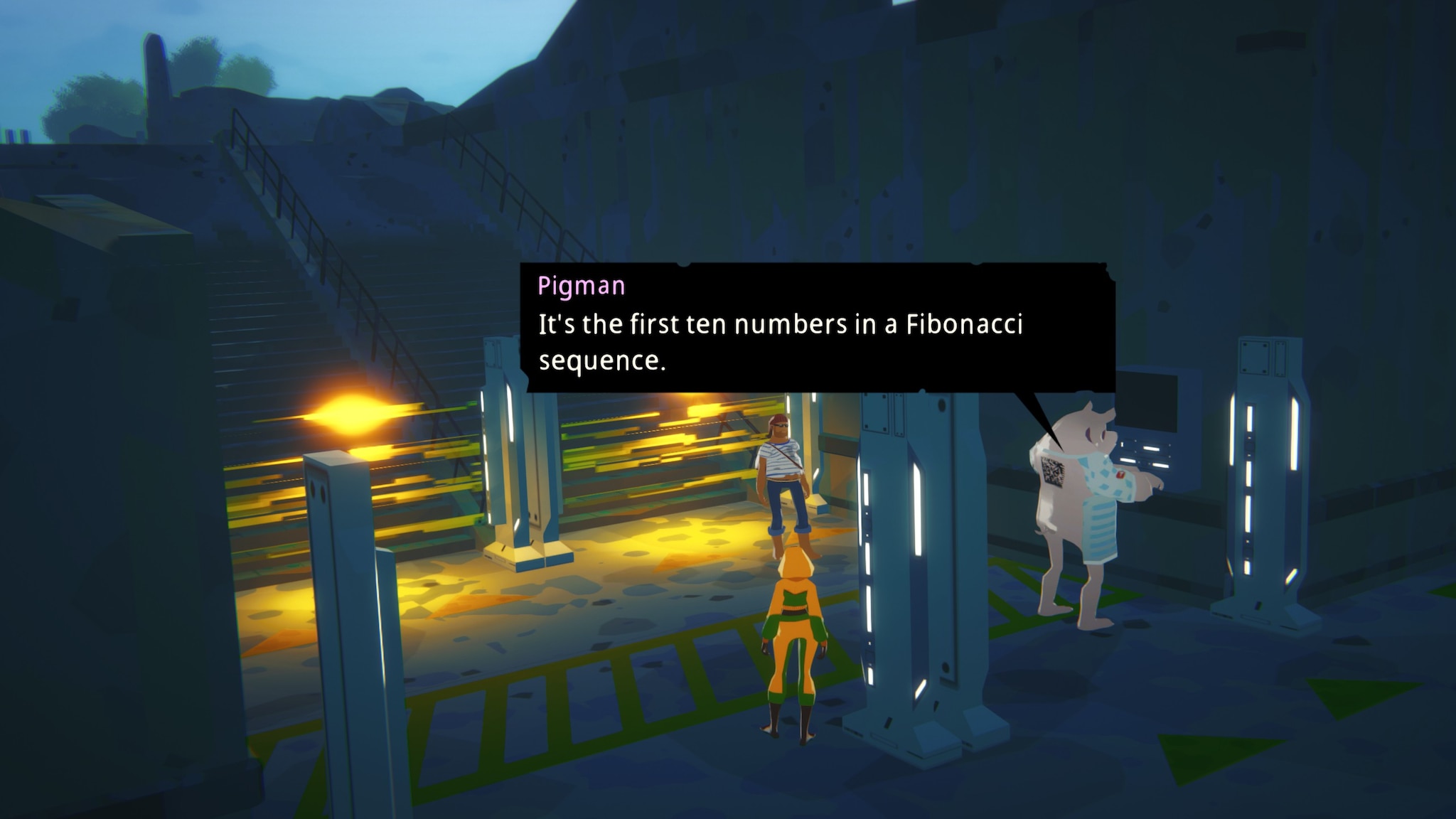
If Highwater has anything going for it, it would be its audio/visual design. The art direction goes for a flat shaded and clean graphic style that relies on brutalist design philosophy. It’s a very European comic book aesthetic with very distinct character silhouettes and color schemes. It’s an appealing visual signature that’s easy on the eyes and has a lot of personality.
Even more impressive than the art style is the music. The soundtrack in Highwater is diegetic and is contextualized through a pirate radio station, complete with a smooth-talking DJ. The music is very Euro-synth and trip-hoppy, but with some elements of dance to it. The DJ’s soothing voice also organically gives a lot of backstory, as he references past events that players can only allude to.
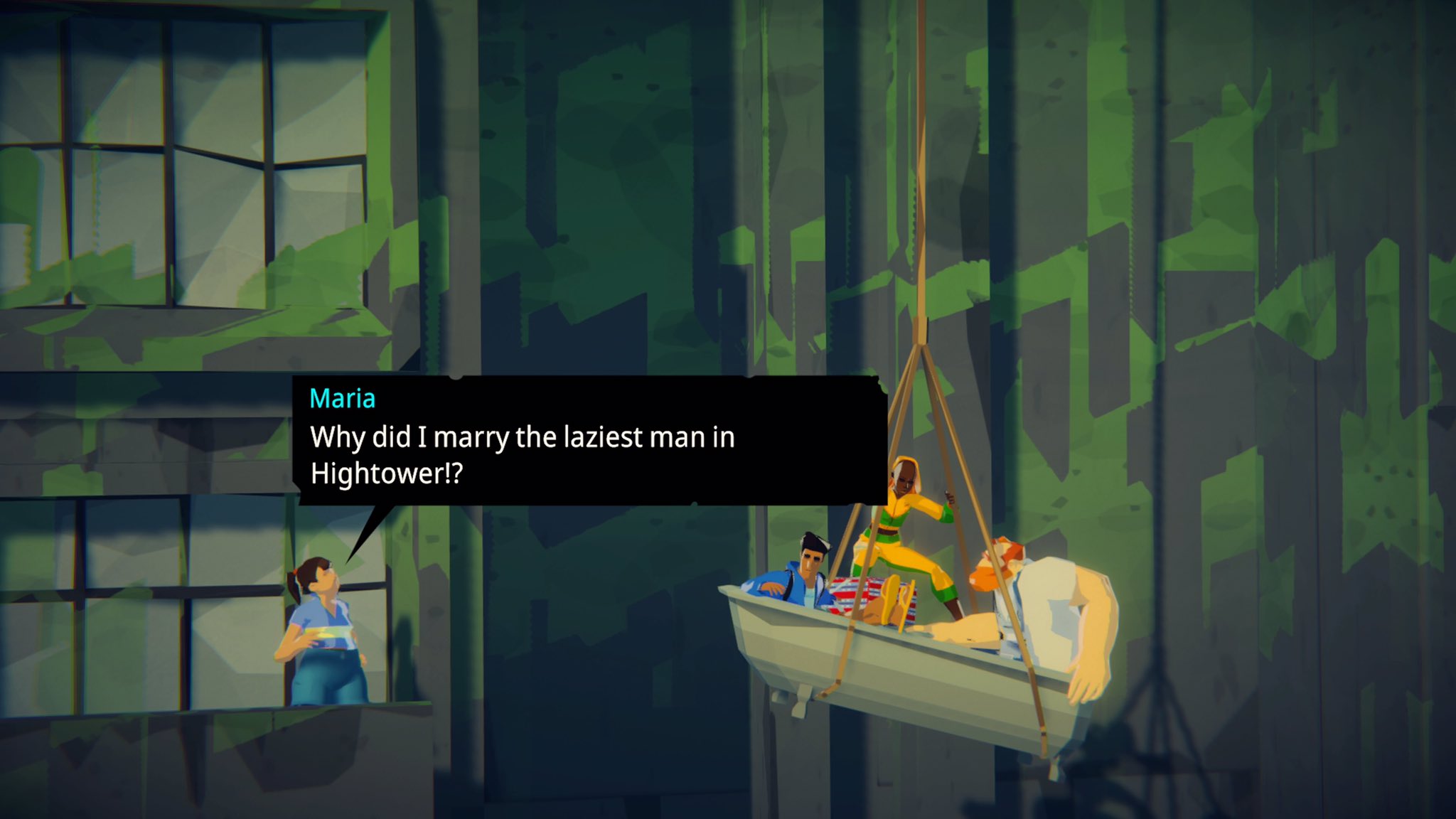
Highwater is not much of a strategy RPG and its story is boring. The adventure game elements are hopelessly bare and the battles are too basic to get any stimuli. It won’t interest children due to the lethargic gameplay and bleak premise, and older gamers will be desperately scraping for substance. It is a slow-moving and short game that looks and sounds kind of neat but is utterly lacking in every way imaginable.
Highwater was reviewed on PlayStation 5 using a code provided by Rogue Games, Inc. You can find additional information about Niche Gamer’s review/ethics policy here. Highwater is now available for Windows PC (via Steam), Android, Nintendo Switch, Xbox One, Xbox Series X|S, PlayStation 4, and PlayStation 5.
